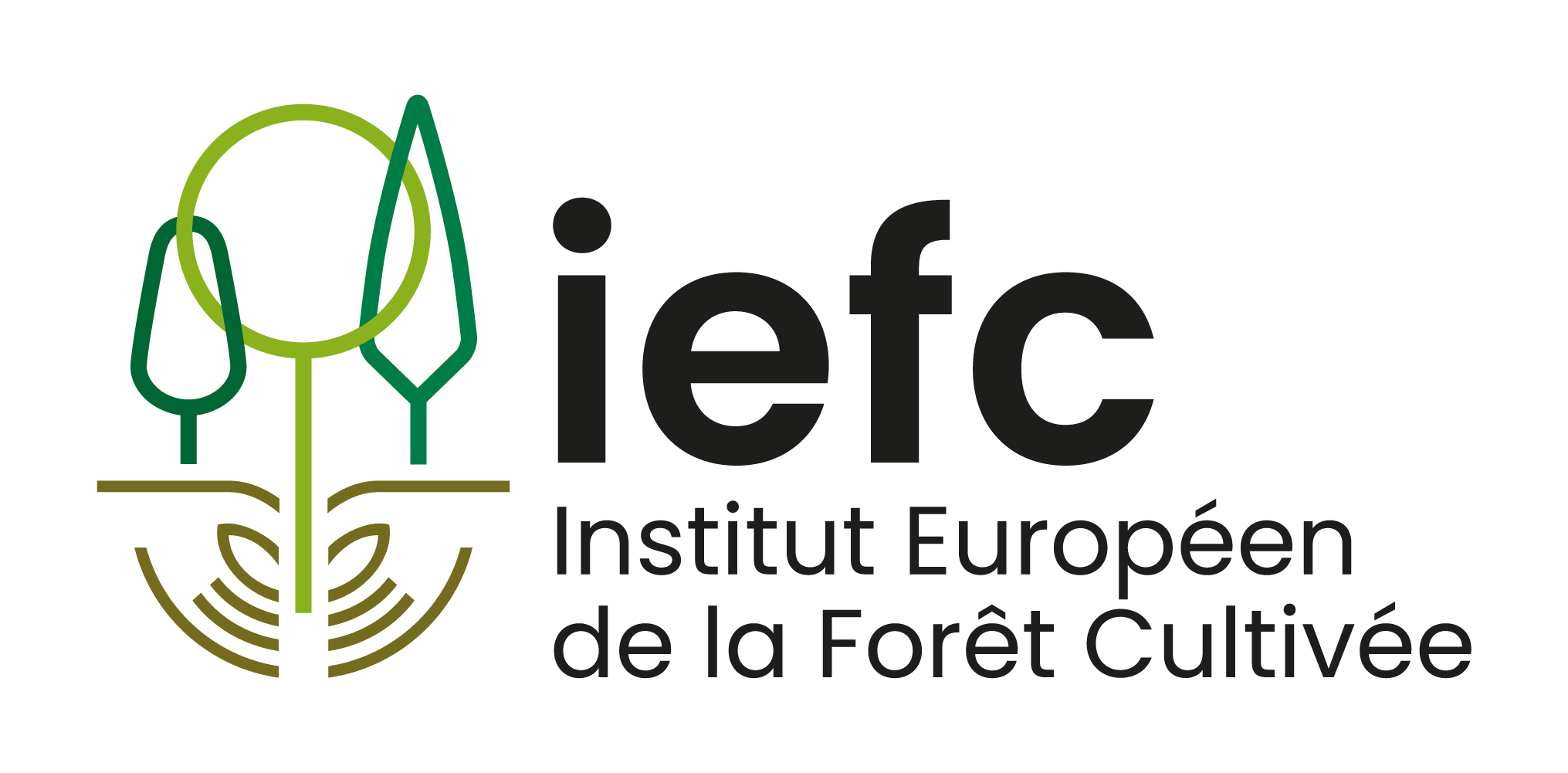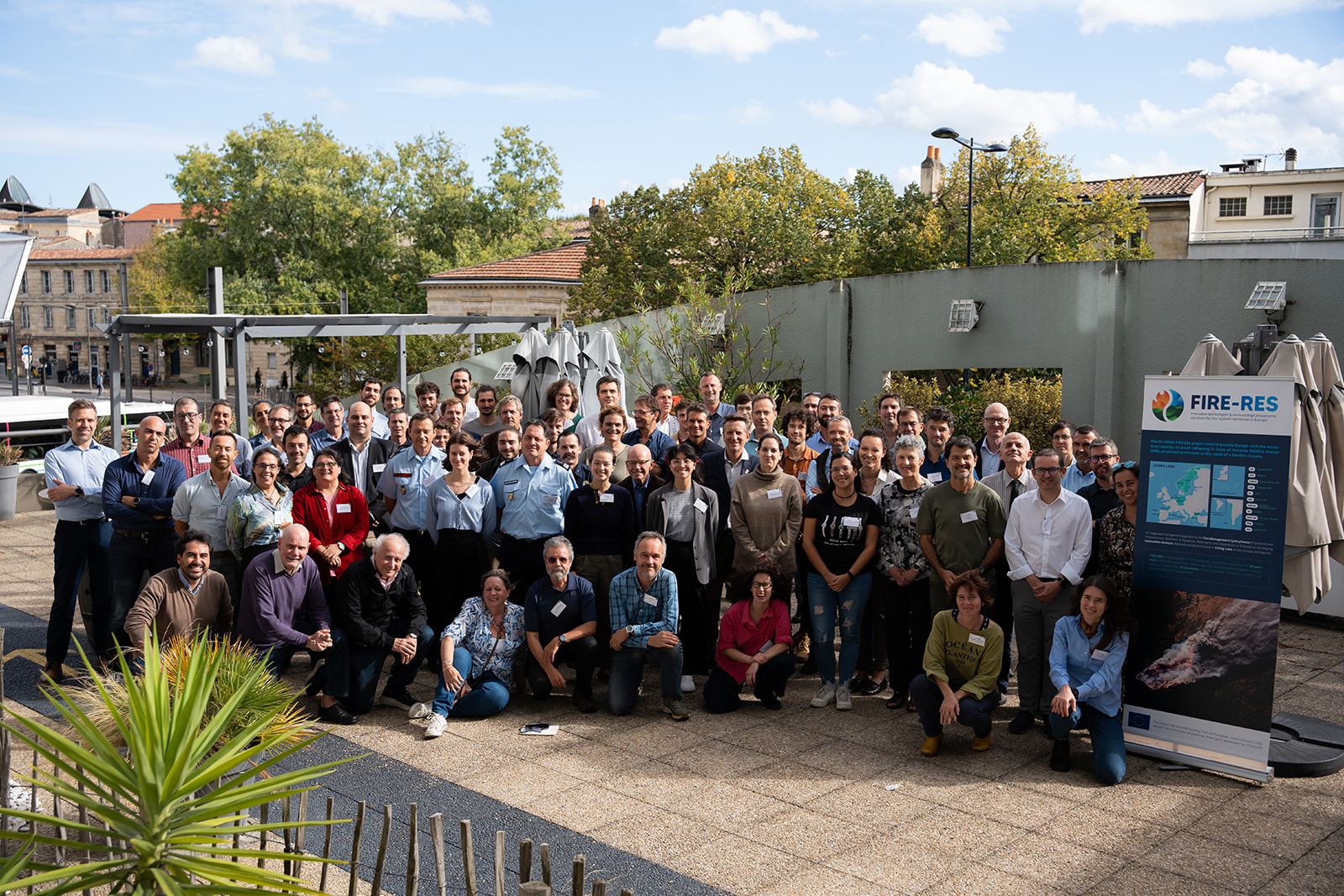From October 8 to 10, 2024, the FIRE-RES project held its general meeting in Bordeaux and Mimizan, bringing together researchers, local stakeholders, and European partners from the 11 Living Labs. Through the Living Labs, the FIRE-RES project aims to explore concrete solutions to make forest landscapes more resilient against major fire risks such as those experienced in southwest France in 2022 or Portugal in 2017. This will be done by integrating technological, ecological and organizational innovations. Co-organized by the IEFC and the CTFC (Centre de Ciència i Tecnologia Forestal de Catalunya), the main theme of the event was financing resilient landscapes, with socio-economic issues, and innovation at the core of the discussions.
Three days of exchange and innovation
The event took place over three days, alternating between conferences and field sessions. A special feature of the program was that the first two days were open to the public, with simultaneous French-English translation and the presence of industry experts and key stakeholders from the Laboratoire Vivant des Landes de Gascogne.
The first day, on October 8, was held in Bordeaux. It opened with keynote speeches from François Gros, Inspector General at the Préfecture de Nouvelle-Aquitaine, and Sophie Weber, Regional Advisor. Speakers from the Aquitaine area (SDIS, Misso Groupama, CNPF, ARDFCI) focused their discussions on the challenges of managing forests in the face of climate change, underlining the need to combine ecological and economic approaches to create sustainable forest landscapes.
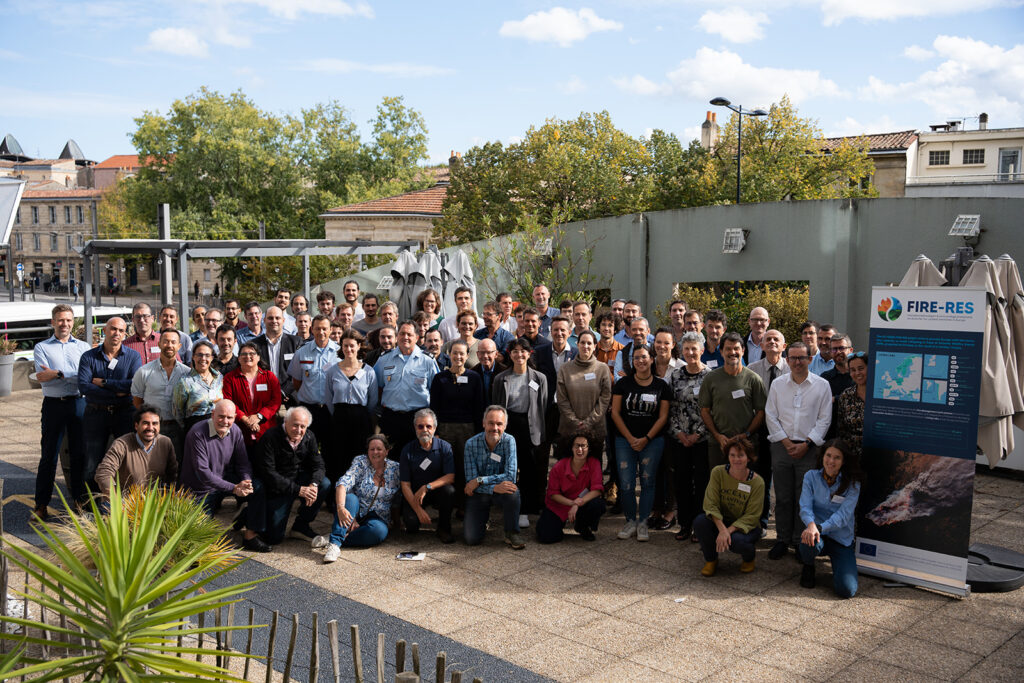
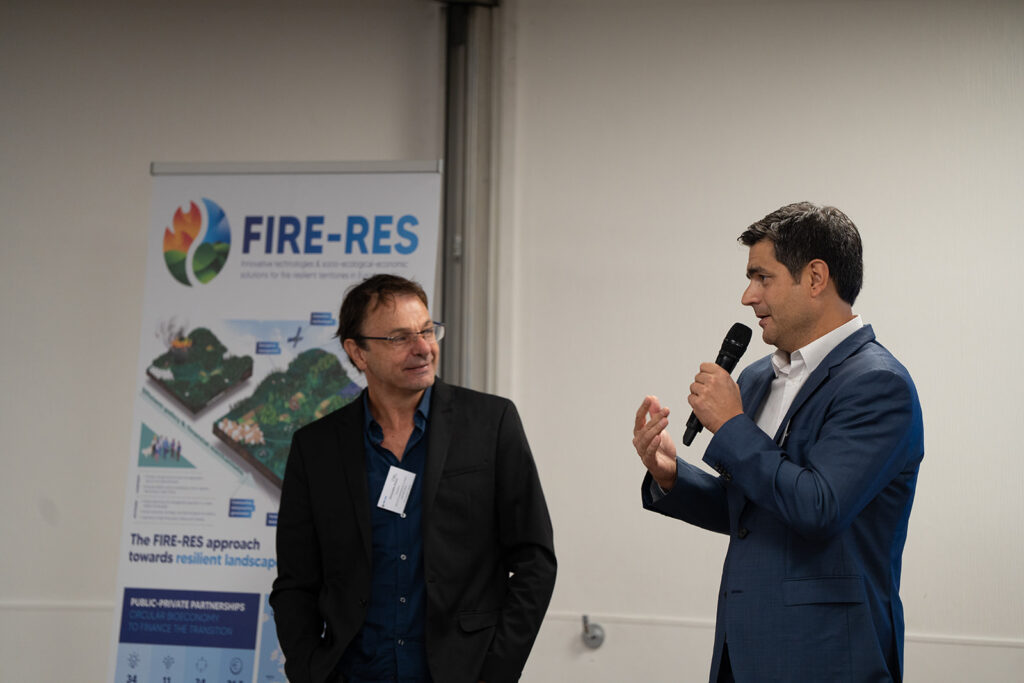
Innovation leaders such as Blueforest and Nactiva Palladium, as well as European partners, then presented the solutions developed and tested by the project in a variety of sessions. These presentations addressed the challenges, opportunities, and innovative models involved in financing resilient landscapes, while underlining the importance of integrating the technical and financial solutions proposed into forest management strategies.
The involvement of local stakeholders, such as SDIS and CNPF, was crucial in ensuring a pragmatic approach based on the realities on the ground, facilitating the transition to more resilient forest management. At the same time, contributions from European partners helped to broaden perspectives and propose complementary solutions.
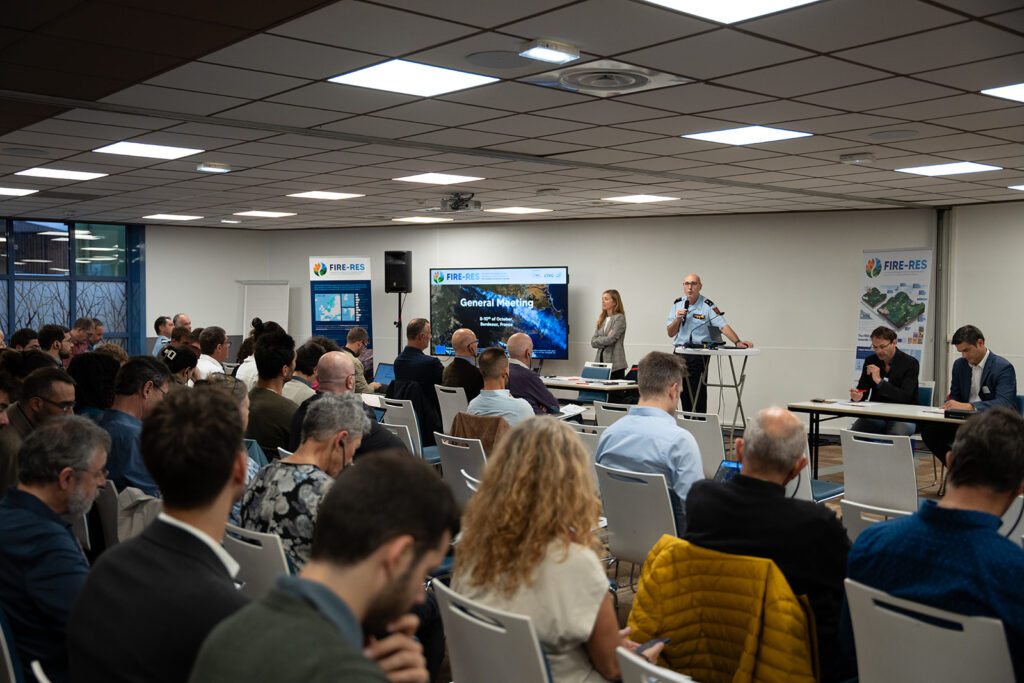
October 9 was an immersive day at Mimizan, with a visit to the FB Bois wood-processing site, and technological demonstrations, such as the use of drones during firefighting, or interventions by SDIS with specialized trucks. Technological innovations, such as the use of LIDAR for risk mapping, are crucial to a better understanding of fire dynamics and guiding sustainable forest management strategies. Marie-France Delest, President of the Mimizan Intercommunal Tourist Office, and Xavier Fortinon, President of the Landes Departmental Council, took the floor during the day to remind us of the risks that forest fires pose to the local economy, but also to put into context the issues surrounding land use and the cost of fighting fires.
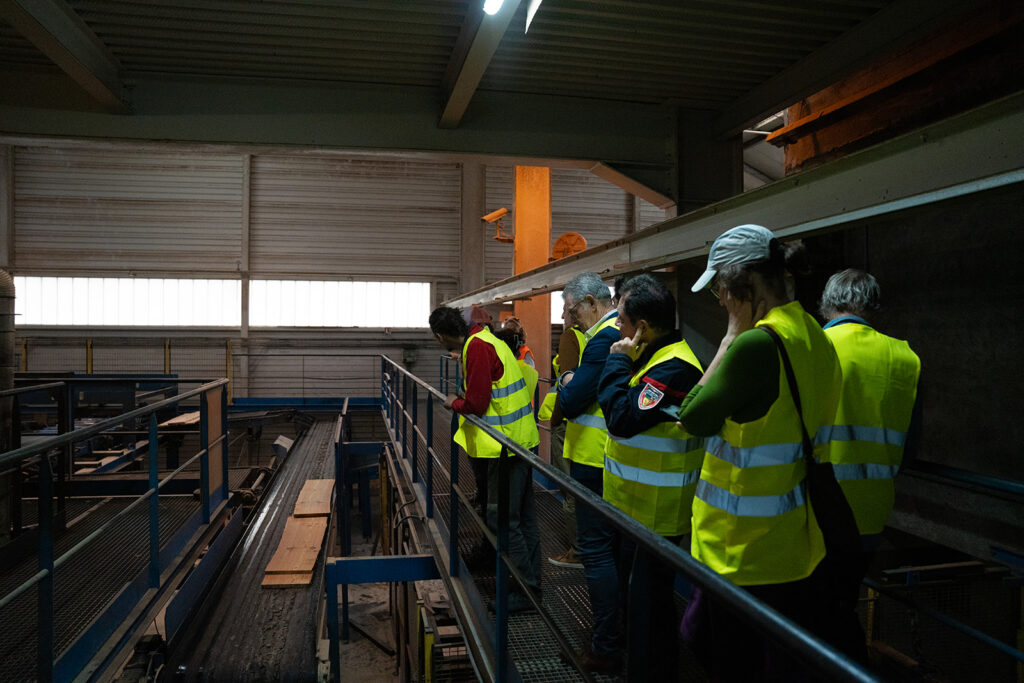
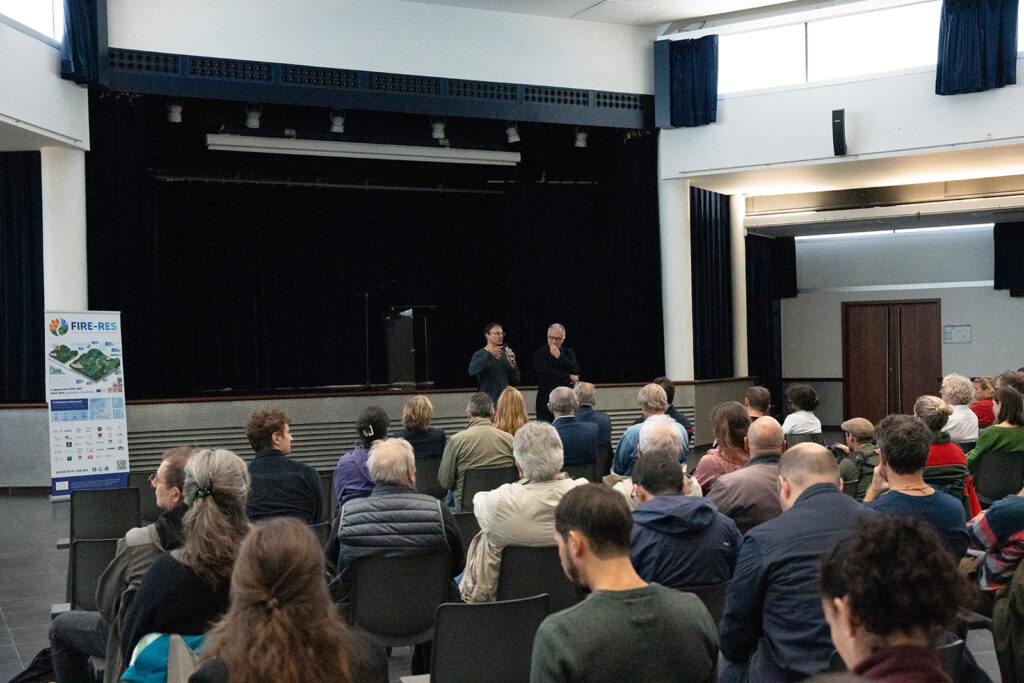
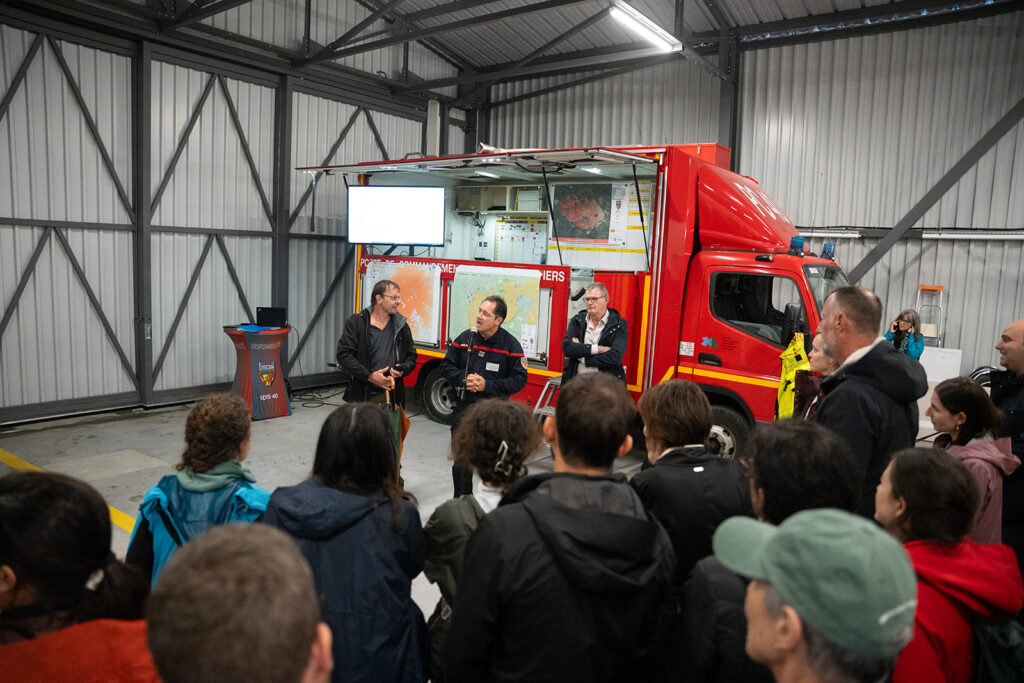
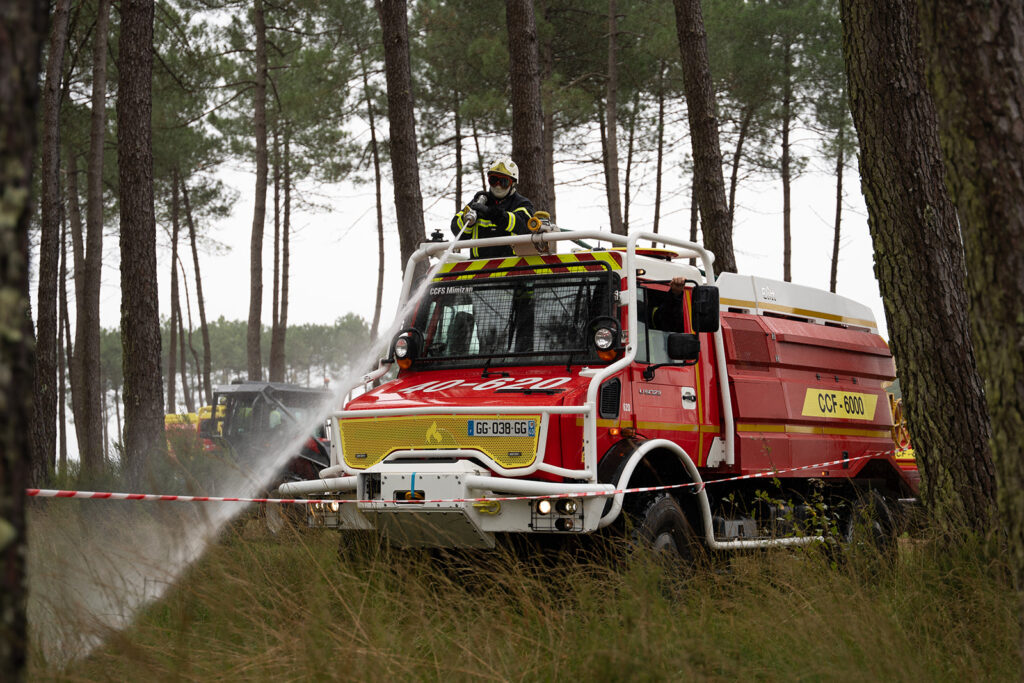
Finally, on October 10, in Bordeaux, the partners held a working session to assess the project’s progress and plan the final year of activities. Preliminary results from the FIRE-RES project have shown significant progress in identifying financial mechanisms to support the sustainable management of forest landscapes, but challenges remain, particularly with regard to integrating innovations into local public policies.
Highlights of the event
This event enabled a real sharing of experience between the stakeholders who were present, promoting exchanges on technical and economic innovations as well as governance issues. The Nouvelle-Aquitaine Living Lab showed its value, with strong cooperation between everyone and concrete initiatives to manage urban interfaces and restore forests. Participants praised the active involvement of local organisations, such as SDIS and DFCI, and the financial initiatives proposed by Blueforest and Plantons pour l’Avenir.
The next stages of the FIRE-RES project will aim to strengthen collaboration between local and European partners and stakeholders, notably by introducing new financial tools and continuing experimentation in pilot areas.
Buoyed by the successes achieved, the project coordinator will register the name FIRE-RES to maintain this Living Lab after 2025, and invites all partners to look for solutions to continue funding the actions initiated, as certain subjects relating to regional planning need to be addressed over the long term.
Daphné Villain, Lucas Morrews
Photos credits: Clement Sintes
